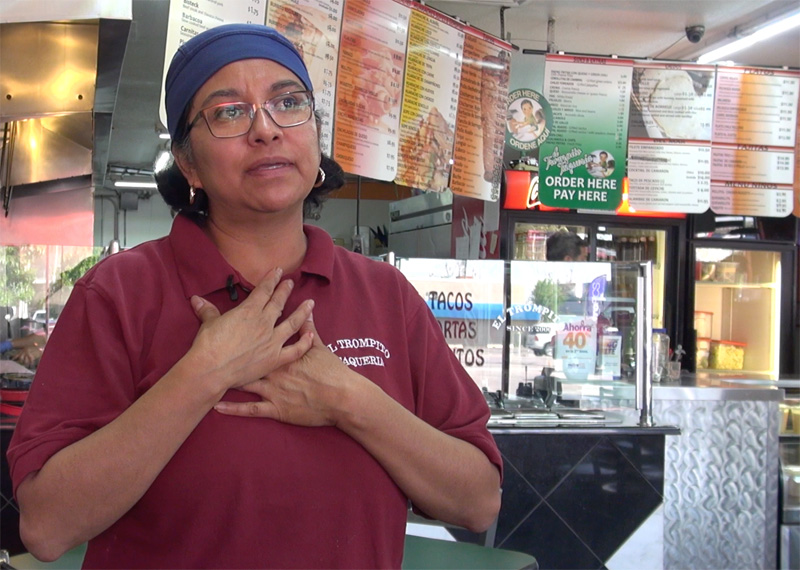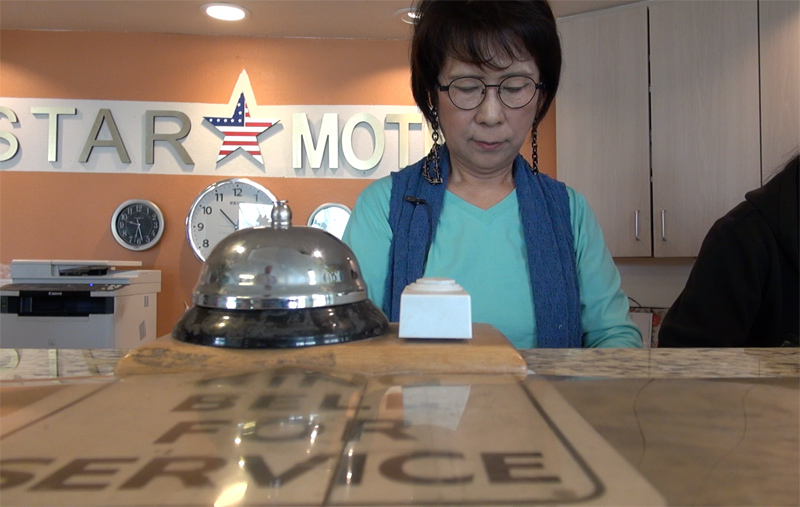For nearly 30 years, Robert Duran has been his own boss. He figured it was the best way to have secure employment through the years. His business in north Longmont raises wholesale flowers and vegetables with a small retail business on the side. Duran knew he’d never get rich. His job is nothing if not picturesque; he and his eight or nine seasonal laborers push carts loaded with flowers and soil between domed hothouses with Longs Peak towering directly west.
In those three decades, he’s faced competitors, down economic cycles, floods, and tornadoes. But to Duran, all of those challenges are weak compared to what he claims is a threat that could permanently put him out of business and ruin much of his life savings all at the same time: a fine from the Colorado Department of Labor and Employment (CDLE) for $271,000.
In 2004, the state Legislative Audit Committee realized that businesses across the state weren’t keeping up with all of the coverage requirements of the workers’ compensation insurance mandated by the state. Workers’ comp is designed not only to pay for employees’ medical bills if they’re injured on the job, but also to replace a portion of lost wages. The audit became a front-page story for the Denver Post on August 24, 2004, with the headline, “State not enforcing workers’ comp laws.”
Acting on the audit, the General Assembly passed a bill that empowered CDLE’s Division of Workers’ Compensation to levy fines for those businesses they discovered were out of compliance. The bill appears to have been remarkably uncontroversial; not a single No vote was cast against it at any time, and it was signed into law by Governor Owens in a year in which Owens vetoed so many bills that he shattered a previous record for the largest number of vetoes in a single legislative session by any Colorado governor.
DURAN’S HOBBY ACRES

Duran and others say the legislation passed in 2005 had crippling shortcomings with regard to restraints on CDLE—shortcomings which are resulting in fines they claim are unconstitutional.
“The intent was to get everyone in compliance, not to steal their home, not to steal their business, not to shut them down and put these poor people (Duran’s employees) out of work even though it’s seasonal work. That was not the intent,” Duran said.
The 2005 bill (HB 05-1139), authorized the Division of Workers’ Comp division to levy fines of up-to $250 a day for first-time offenders. For those who were caught out of compliance a second time, the fines could range from $251 to $500 per day that the business was out of compliance.
Unstated in the fine structure, however, was any sort of timetable for catching the offenders and for levying the fines, and that’s where the problems begin.
Because of a previous slip in coverage in 2008, Duran was already in the “second offender” category of fines. But when he was notified in October of 2015 that he was out of compliance, it wasn’t as though CDLE had quickly apprehended the situation. They told Duran he had been in and out of compliance for roughly two and a half years, and the total of his fines amounted to an astonishing $271,700.
As a point of comparison, a fiscal note that accompanied HB 05-1139 shows that the state estimated it would collect about $200,000 in the new fine structure’s first year. Mr. Duran’s fine alone was $71,000 more than what the General Assembly estimated they would fine and collect in the entire first year of enforcement from all violators all across the state.
The same estimate also hypothesized that the average fine for “second offenders” like Mr. Duran would be about $28,000. Duran and his attorney, Jose Colón, are arguing that the average fine of $28,000 for second offenders shows an assumption by the legislature that CDLE would be discovering and notifying non-compliant employers within sixty to ninety days of lapsed or cancelled coverage.
Colón and Duran believe the fines are “one size fits all,” and are tilted in favor of larger businesses at the expense of small, family-run outfits because the larger businesses have legal teams and human resources staff that can stay on top of the numerous legal requirements a business faces.
“What you get is that smaller businesses are going to suffer because they’re the ones who are more likely…to not know what they’re doing wrong,” Colón said at his office with Pierce and Elliot, where he works in Commerce City.
Mr. Duran offered the CDLE a settlement of $30,000. It has not been accepted.
EL TROMPITO TAQUERIA
For as bad a situation as Mr. Duran might feel he is in, Silvia and Luis Atunez are struggling against even greater odds.

The Atunez couple owns El Trompito Taqueria*, a fast-casual Mexican grill less than 100 yards east of 70th and Pecos. Situated at the end of a small strip mall, the restaurant disarms you with bright paints, gleaming polished glass at the ordering counter, and a small ice cream shop in a space just added next door. Even during the lull hours of two and three o’clock in the afternoon, the restaurant’s walk-in business remains steady. The eatery won “Best Taqueria” from Westword magazine in 2012, and is open 84 hours a week.
CDLE has fined El Trompito Taqueria $516,700 for coverage violations that reach back five years.
Silvia Atunez’s complaint is similar to Duran’s in that she says she’s hard pressed to understand why or how CDLE failed to let her know she was out of compliance soon after she became that way.
As a first-generation immigrant from Mexico City, Silvia’s English is understandably rough.
“They should (have) contacted me, because it’s always email on file, I have the same home for ever and ever, they have the ways to contact me, to let me know. Maybe, I don’t know, a year, two years, three years. But five years? They just contact(ed) me.”
Silvia added that she feels her business ought to pay a fine for being non-compliant, but not one that totals over half a million dollars.
“I’m very, very sad,” Atunez said, “but we need to keep up. I mean, we want to work, and continue with our American Dream that is our business and our kids, send them to college.”
COMPETITIVE ADVANTAGE
In the 2004 Denver Post report, various lawmakers at the time seemed less concerned about a worker that might be left without workers’ comp benefits, and more concerned that businesses might have been dropping the insurance in order to save money, gaining a competitive advantage by doing so. From the report:
Rep. Val Vigil, who chaired the (audit) hearing, called the lack of enforcement disturbing, and said that legislative changes may be needed.
“We’ve developed a system that allows employers to play games,” he said.
“(CLDE is) not even fining people,” he said. As an employer, “I’m ahead of the game if I can get away with (dropping coverage) for one or two years.”
Colón says that if CDLE and lawmakers wanted to stop businesses looking for an unfair advantage, that’s all the more reason CLDE should be exceedingly prompt.
“If you’re doing the wrong thing, yeah, a penalty isn’t a problem,”Colón said. But he says legislators made the fatal mistake of assuming that CDLE would be catching – and informing – violators quickly. “From what I heard (in archived audio of legislative hearings), I didn’t get any impression that they meant this to go on years. In fact, how do you regulate an, an environment of competition if you don’t even tell anyone that they’re cheating until eight years later, three years later, five years later? It doesn’t make any sense.”
CDLE declined an on-camera interview, but spokeswoman Cher Haavind said in an email, “It is not appropriate for the Division to comment on the soundness or appropriateness of the policy as our responsibility is to enforce the law, however, we are committed to being held accountable for the efficiency and transparency with which we carry out our statutory responsibility to ensure workers’ comp coverage.” Haavind did say there are currently fifteen open cases in which the business is being fined more than $100,000.
At least a portion of the audio from the House Business Affairs and Labor Committee from 2005 makes clear that lawmakers were concerned with keeping businesses open and operating.
Representative Rosemary Marshall: When the Department (CDLE) doesn’t need to shut down a business, it’s much more favorable that the business continue because people stay employed, and so fines, uh, to be imposed, as an option I think is a good tool for the business to have.
Representative Fran Coleman: I couldn’t have said it better.
(Minute 5:08 of the audio)
Duran and Colón further believe CDLE is being hypocritical for holding employers to the highest fines possible, when as recently as January 2016 the department was still issuing workers’ comp booklets to the public that contained incorrect information on fines, information that was outdated by at least ten years.
This January, Duran picked up a physical copy of the “Division of Workers’ Compensation Employer’s Guide” booklet from CDLE’s offices. The booklet was published in July 2005, and states that the amount of fines to be collected for not having workers’ compensation insurance is not to exceed the amount of premium avoided – a statement that became incorrect with the passage of the bill authorizing the new fine structure.
As proof that the division was still issuing outdated information very recently, Duran asked the customer service representative at CDLE to stamp the booklet. The stamp reads, “Jan 29, 2016.”
DAMI HOSPITALITY
The emblematic case study of this issue, however, is Dami Hospitality, the company name for the Star Motel situated off I-70 and Peoria in east Denver.

Mrs. Soon Pak is the owner of the motel, which employs three or four people, depending on the demand.
Her fines go back about eight years and stand at a total of $841,200. Pak is challenging the fines in the Colorado Court of Appeals.
Like Silvia Atunez, Mrs. Pak is an immigrant who speaks English as a second language.
When asked if she was trying to avoid purchasing workers’ comp insurance on purpose, Ms. Pak was quick to say, “Not at all.”
“Two thousand dollars not that big of money for a year. So if I recognize that insurance, then I will have it.”
Like the others, Pak says there was no notification that she was out of compliance and that the fines were piling up to a perilous total.
“Eight hundred forty-one thousand dollars. Who going to make that much money, for like me, small business people? That’s unbelievable charge and law,” Pak said from her motel’s front counter. “That kind of law, I never seen. This is America. You know, help people, for the people country. Then they’re going to kill small business people. They need to let us know.”
Like Duran, Pak claims that when she complained to the state, they said some compliance issues dated back many years because CDLE was understaffed.
“When I went to state, they told us, uh, they don’t have many people for the inspection of they have the insurance or not. That’s not, you know, my problem. That’s their problem. If one year, no insurance, they have to let us know.”
While Colón does not represent Ms. Pak, he’s very familiar with her case because of the numerous legal rulings that are being created in district court.
“Once you see a ‘Dami’ case, which was 2015 when I believe when they issued that fine, you need to step back and say, ‘Why is it taking us eight years to tell somebody that they’re in trouble?’” Colón said. “You need to step back and say, ‘We’re going to stop these fines for a minute and talk to the legislature and say, ‘How do we fix this?’ because you don’t just continue to push fines forward that put people out of business.”
LEGISLATIVE INTENT
Former state representative Fran Coleman (D-Denver) was one of the primary sponsors of the bill authorizing the fines.
Responding to Complete Colorado by email, Coleman clearly sided with the small businesses in this article at least in terms of the promptness of notification from CDLE and the overall size of the fines:
The 2005 legislative fiscal note stated that timely notices and the resulting fines would average $200K in annual state income. And actually an expectation by the legislature was that in time the revenue from these fines would dwindle as more and more businesses got the message and thus stayed compliant with no break in coverage. I believe that new legislation is in order to address the “lack of timely notice” by the Department of Labor and Employment to businesses.
…I really believe that the Audit Committee needs to look at new legislation definitely in 2017 to correct 8-43-301. Most importantly, the new legislation should allow small business caught in this “fine nightmare” the opportunity to negotiate with the department to allow a payment plan and avoid being put out of business.
A CULTURE OF FINES
State Senator Jerry Sonnenberg (R-Sterling) says fines statewide have become a problem.

“I have already called on (Governor John Hickenlooper) to take a look at these, uh, scenarios where they’re doing heavy-handed fines, whether it be from CDPHE (the Colorado Department of Public Health and Environment) or the Department of Labor and Employment, or from the Department of Regulatory Agencies,” Sonnenberg said in an interview at the Colorado Capitol. “Governor, you’ve got to get your handle on this and and provide help rather than a hammer.”
Sonnenberg ran a bill during the 2016 legislative session aimed at reducing the state’s usage of and dependence on fines in general, but the bill failed.
“I can tell you that the legislature needs to step up during the next legislative session and deal with this. I tried to deal with it this year and I tried to paint too broad a brush. Next year, it’ll be more pinpoint so that we can address these fines that are coming from the executive branch, and hopefully the legislature will wake up to their responsibilities, and say, ‘Look, that was never the intent of the bills that you (state agencies) are using to put people out of business.’”
*The Atunez family have had another legal dispute regarding employment matters unrelated to workers’ comp. In 2014, the pair settled claims out of court that they improperly withheld overtime payments from some employees.
Send us tips at CompleteColorado@gmail.com.


